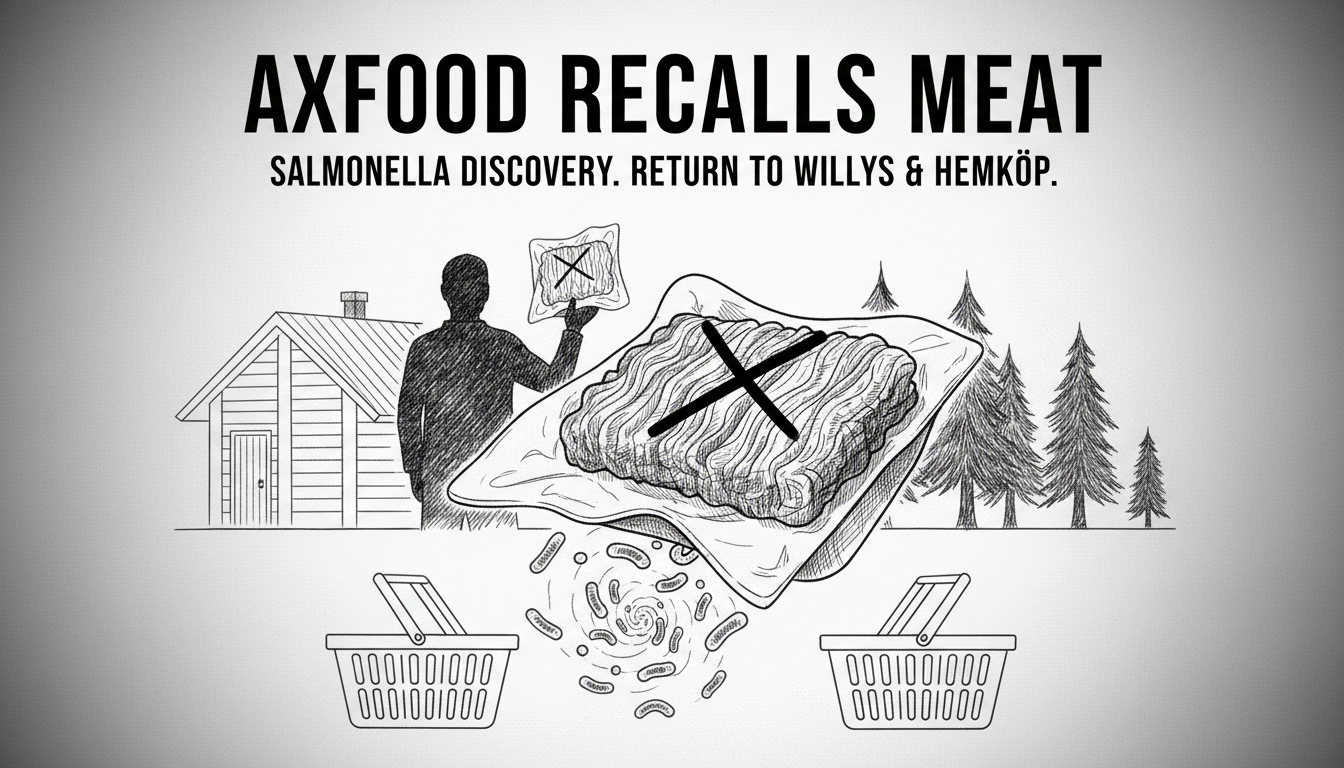Swedish food retailer Axfood has issued a major recall of mixed minced meat containing beef and pork. The company detected salmonella contamination in the product, prompting immediate removal from store shelves.
The recall specifically affects mixed minced meat with 20% fat content, imported, approximately 1 kg packages. The affected batches carry a best before date of November 12 and batch number 5281041084. These products were sold exclusively at Willys and Hemköp supermarkets across Sweden. All remaining stock has been pulled from sale.
Health officials confirm the contaminated meat poses potential health risks to consumers. Salmonella infection can cause serious gastrointestinal illness, particularly in vulnerable populations. The bacteria does die when heated to at least 72 degrees Celsius during cooking, but improper handling or undercooking could lead to illness.
No illness cases have been reported in connection with this contamination so far. Swedish food safety authorities are monitoring the situation closely.
Axfood's quality chief Susanna Wadegård addressed the seriousness of the situation in a company statement. "We take this matter extremely seriously and are investigating with our supplier how this could have occurred," Wadegård said.
This recall highlights ongoing challenges in Sweden's food safety system. The country maintains strict food safety standards, yet imported meat products occasionally slip through quality controls. Sweden's National Food Agency routinely conducts inspections, but supply chain complexities create vulnerabilities.
For consumers who purchased the affected product, Axfood recommends immediate return to any Willys or Hemköp store for full refund. Customers should handle the meat carefully and avoid consumption even if planning to cook it thoroughly.
Food recalls of this scale are relatively uncommon in Sweden, which prides itself on high food safety standards. The incident raises questions about import controls and testing protocols for meat products entering the Swedish market. Previous similar incidents have led to tightened regulations and increased testing requirements.
International readers in Sweden should check their refrigerators and freezers for the specified batch numbers. Expatriates and tourists might be particularly vulnerable since they may be less familiar with Swedish food brands and recall procedures.
The economic impact on Axfood could be substantial, given the costs of product retrieval, investigation, and potential reputational damage. Consumer confidence in food safety remains crucial for Swedish retailers operating in a highly competitive market.
What happens next? Axfood must complete its investigation and implement corrective measures. Swedish food authorities will likely review import procedures for similar products. Consumers can expect increased transparency about the investigation findings in coming weeks.

